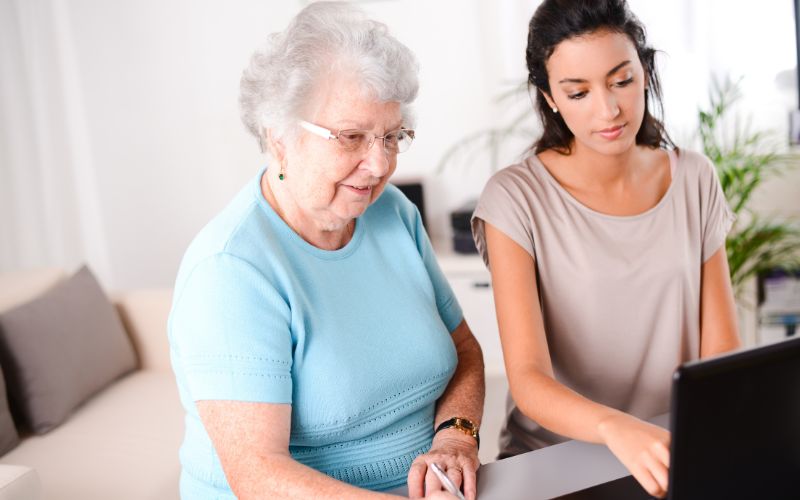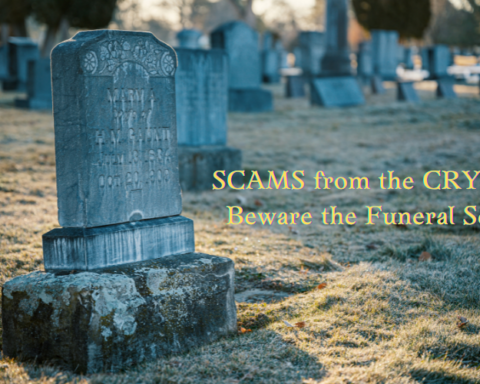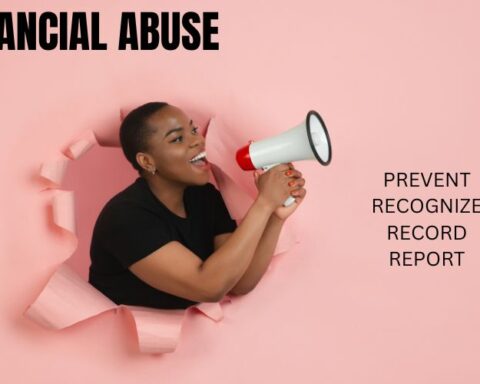Original Post | Manchester Union Leader
I SOMETIMES WONDER about the need to name a “day” to draw attention to a cause. However, in this case, the cause is one that needs attention: protecting older Americans suffering from isolation from abuse.
June 15 was World Elder Abuse Awareness Day, launched in 2006 by the International Network for the Prevention of Elder Abuse and the World Health Organization, according to the University of Southern California’s Center for Elder Justice.
There is no question that scammers prey on older people.
The FBI reports that every year, “millions of elderly Americans fall victim to some type of financial fraud or confidence scheme, including romance, lottery, and sweepstakes scams, to name a few.” (See the link to “Scams and Safety: Elder Fraud” at the end of this column).
Here is an example of a scam that can attract the attention of an innocent senior as it relates to Social Security: Someone poses as a Social Security employee and contacts the target with a story that implies that the senior’s Social Security number is linked to a crime.
There are many other scams, some dealing with COVID. For example, scammers call seniors to sell them vaccines, even though COVID vaccines are free. Then there is the “grandparent scam,” which entails criminals posing as a relative — usually a child or grandchild — claiming to be in immediate financial need. The “charity scam” involves scammers pretending to be legitimate charities that are seeking “donations.” Investment scams can be anything from pressure to buy quickly to promising high returns at little risk.
If you have elderly relatives, watch for any of these signs of potential fraud:
- A sudden reluctance to discuss financial matters.
- Changes in spending habits, or in a will, trust or beneficiary designation.
- Checks made out to “cash.”
- Unexplained loans.
- Signatures on checks that don’t look like the senior’s.
- A new friend who is “overly protective.”
- A sudden change of feelings about somebody.
Keep in mind that seniors may be embarrassed or reluctant to talk about these topics.
And keep in mind that one technique fraudsters use is to isolate their victims from their families and friends. Consider also the added impact of social isolating we have been experiencing during the pandemic.
This may be a good time to engage your older relatives in a talk about scams.
Share some examples and some signs of untoward behavior. Ask them how they would react if contacted by phone, email, mail or in person by someone they don’t know for a request for money or information. Also share some resources, such as these: FINRA Foundation report, “Exposed to Scams: What Separates Victims From Non-Victims?”
“What fraud and scams should I know about,” on the Social Security website at ssa.gov/coronavirus.
“Scams and Safety: Elder Fraud” from the FBI at tinyurl.com/ny8wnv2p.
“Social Isolation and the Risk of Investment Fraud” (tinyurl.com/yfwpshp6), which is a combined effort by the Financial Industry Regulatory Authority (FINRA), the North American Securities Administrators Association (NASAA) and the Securities and Exchange Commission’s Office of Investor Education and Advocacy to raise awareness.
World Elder Abuse Awareness Day is an important reminder about protecting older people. Everyone needs to stay up-todate about the many scams that are out there, and if you have elderly friends and relatives, make sure that they know you are there to help them if something like this happens to them.
About The Author
Julie Jason, JD, LLM, is a personal money manager with Jackson, Grant Investment Advisers Inc. of Stamford, Conn., and an award-winning author. Send questions and comments to readers@ juliejason.com.








